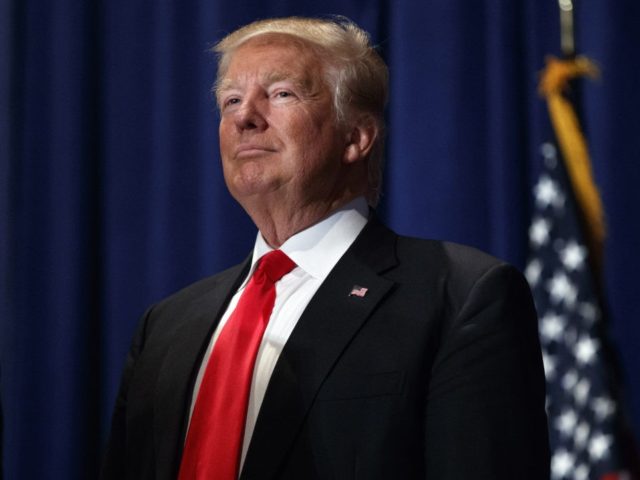Yesterday in Youngstown, Ohio, Donald Trump delivered the best speech of his campaign to date. Newt Gingrich rightly called it the most important since Ronald Reagan left office.
In fact, in many ways, it was very Reaganesque. After all, long before he became president, Mr. Reagan warned that every generation faces an existential threat to freedom. Mr. Trump made clear that he recognizes the threat to freedom in our time, which he explicitly characterized as “Radical Islam” and its guiding, supremacist ideology, Sharia.
The GOP nominee also channeled President Reagan by espousing a comprehensive strategy highly reminiscent of the one the Gipper formally adopted in his National Security Decision Directive 75 and employed to defeat freedom’s last existential threat: Soviet communism. Mr. Trump recognizes that now, as then, we must bring decisively to bear all instruments of national power – economic, military, intelligence, information and ideological.
The last element, which was emphasized repeatedly in the Trump speech, reflects an essential understanding that has eluded past administrations of both parties and some of the candidate’s most vociferous critics, Democrats and Republicans alike: Jihadists who seek the destruction of our country, its Constitution, and people employ different tactics – including violence, migration, material support for terrorism, recruitment, indoctrination, conversions and stealthy subversion. But they are all motivated by the same ideology: Sharia. Donald Trump declared yesterday that if you embrace that supremacist doctrine, you must seek to supplant our Constitution and, therefore, you are not welcome here.
Specifically, the speech adopted a basic principle: As a foreign national and would-be immigrant to this country, you must share our values to gain admission. That filter has for too long been absent and has greatly contributed to the ominous demographic trends facing not just Europe, but this country, as well: growing numbers of transplanted and inherently hostile populations, most of whom have no interest in assimilating and, rather, insist that freedom-loving Americans accommodate their demands and, ultimately, submit to Sharia.
Finally, the Republican candidate to be our next Commander-in-Chief spoke of a reality that can no longer safely be ignored: There are “networks” in America that support “radicalization.” In so doing, he recognized another hard lesson from Europe’s experience. Violent jihadists rely upon and exploit the infrastructure (including Islamist mosques, societies, cultural centers, front groups, influence operations, etc.) that has been systematically put into place in the West over the past fifty years by Islamic supremacists, notably those associated with the Muslim Brotherhood. We have no choice but to identify, designate and roll-up such operations.
Donald Trump’s remarks in Youngstown implicitly addressed another important issue about his candidacy. Particularly for those who have been uncertain about the GOP nominee’s propensity to make provocative comments, concerns played upon by critics’ assailing his judgment, this speech should be comforting. It not only displayed a discipline on the part of the Republican nominee to “stay on script.” It also spoke volumes about the quality of the people who are advising Candidate Trump and writing that script – and, presumably, who would be advising him should he win the White House. At no point since 9/11, and arguably for thirteen years before, has there been a better articulation of what’s at stake and what needs to be done to secure freedom, namely by seeking and achieving Victory over Jihad. We desperately need more such visionary and collaborative leadership.
Donald Trump set the stage yesterday in Youngstown for the sort of national debate – and choice – that is long overdue and absolutely necessary. Bring it on.

COMMENTS
Please let us know if you're having issues with commenting.